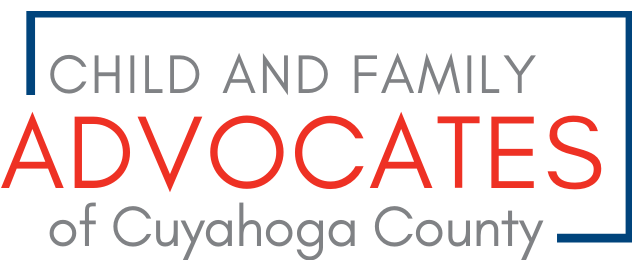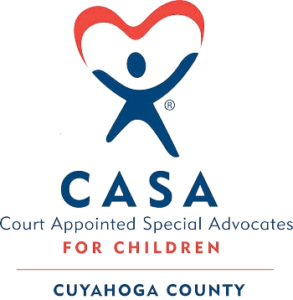CASA FAQs
Frequently Asked Questions
What exactly does a CASA do?
CASAs are appointed by the Juvenile Court to advocate for the best interests of children who have been abused or neglected. Children range from newborn to 18 years old. The primary responsibilities of a CASA are to:
- Gather information: Review documents, records, and interview children, family members and professionals.
- Document findings: Provide written reports to the court.
- Appear in court: Advocate for the child’s best interests and provide testimony when necessary.
- Explain what is going on: Help the child understand the court proceedings.
- Seek cooperative solutions: Seek solutions among individuals and organizations involved in the children’s lives.
- Recommend services: Help to ensure that the children and their family are receiving appropriate services.
- Monitor case plans and court orders: Check to see that plans and orders are being followed.
- Keep the court informed: Update the court on developments with agencies and family members.
What are the benefits of supporting a CASA program?
By helping to protect a child from a life of abuse and neglect, we help to prevent the cycle of victims becoming abusers and passing on the heredity of violence. Abused and neglected children have an advocate who is committed to and solely focused on their welfare.
Children with CASAs are not faced with “falling through the cracks” of the child welfare system. In addition to giving back to the community, CASAs also experience benefits in their own lives from volunteering:
Enjoying a sense of purpose and fulfillment
Expand communication and critical thinking
Increased self-awareness
Develop a fellowship with others in the community
Utilize life experience and skills
Ongoing training opportunities
How much time is required of a CASA?
Each case is different. When a case is initially assigned, a CASA may spend several hours per week researching the case history and conducting interviews. CASAs spend anywhere from 10-15 hours each month on their cases and visit with the children at least 1-2 times a month. Some cases may continue for two years or longer and CASAs are asked to commit until a case has been closed. Often times the CASA is the only consistent presence in the child’s life.
What if I have no experience working with children, families or the court?
No professional experience is required to be a CASA. We provide training, guidance, support and structure throughout the process. You can rely on program staff to work with you each step of the way. Basic requirements include: be at least 21 years old, complete background checks, provide references, and participate in an interview, complete pre-service training, be available for court hearings, and be willing to commit to the program for the life of a case.
What kind of training is provided?
All CASAs are required to complete pre-service training, which is approximately 30 hours of coursework and in-person workshops and a court observation. After the initial training, CASAs are required to maintain 12 hours of continuing education annually, which we provide through access to webinars, in-person trainings, online resources, and on-going professional guidance. In the first year, completion of the CASA pre-service training will meet the 12-hour requirement.
What kind of support and guidance is provided?
Each CASA is paired with a Volunteer Coordinator who will explain each step of the process, provide guidance and answer any questions that may come up during your case. Your assigned Volunteer Coordinator will typically check in with you once a month or so if they don’t hear from you first.
How many cases does a CASA handle at one time?
Generally, a CASA will be responsible for one case at a time. There are some rare exceptions, but CASAs generally do not serve on more than two cases at a time.
Can I work on my CASA case after work and on the weekends?
Generally, yes. Scheduling interviews, home visits and writing your summaries can be coordinated for your convenience, so long as the court report is completed by the designated due date.
Do I need to take time away from my job to appear at court?
CASAs are required to attend all court hearings pertaining to their case. When a CASA is appointed to a case, they become a legal party and are held to the same expectations as the other professional parties on the case. Court hearings take place during regular business hours, Monday – Friday between 8:30 a.m. – 4:30 p.m. Many employers will accommodate your volunteer responsibilities with documentation.
How will I know what services to recommend for the child?
After you have gathered a significant amount of information and summarized most of your interviews in a report template, you will have a general idea about your top concerns regarding the child’s safety and well-being. Your Volunteer Coordinator will ask questions to ascertain your concerns and will offer suggestions based on known local available resources.
How will I know what kind of information to include in my report for the court?
Our structured process includes guidance from program staff, a written guide with suggested questions and report templates that prompt you to gather the information needed for court. Additionally, your Volunteer Coordinator will review your court report to ensure you have all the information you need to advocate effectively before the report is filed with the court.


